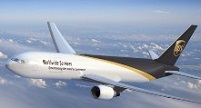Governments and politicians around the world are urgently examining ways to strengthen air cargosecurity, following last week’s discovery of two bombs hidden in US-bound shipments from Yemen
within the UPS and FedEx systems. However, the initial focus has been on restricting air cargoshipments from Yemen, rather than wholesale knee-jerk changes to global air cargo security – anapproach welcomed by the air freight industry.Germany, Canada, the Netherlands and France have become the latest countries to join the UK andthe US in placing bans on incoming freight on flights from Yemen, with UK authorities expanding theban to include unaccompanied air freight from Somalia. Some countries, including Germany, have alsostopped passenger flights from Yemen, and Germany said it was also considering extending its ban oncargo from Yemen to other origin points.
There have also been reports that the UK and the Netherlands have placed a ban on air freightshipments from Nigeria, although this was unconfirmed at the time of writing. Airline security inNigeria has come under heightened scrutiny following a separate failed attempt last December tobomb a US aircraft by a Nigerian passenger flying from Lagos. He allegedly was found withexplosives of the same type – PETN or Pentaerythritol tetranitrate – as that concealed within lastweek’s two cargo shipments from Yemen, and all three incidents have been linked to the terroristorganisation Al Qaeda on the Arabian Peninsula (AQAP). Nigeria said it would improve the scanningof air cargo bound for the US.
The UK said it was also banning shipments of large toner cartridges – of the kind used toconceal the explosives in the recent bomb attempt – except from recognised suppliers, and bannedair passengers from taking them onto aircraft.
Meanwhile, teams of US security specialists have been sent to Yemen to train cargo screeners atthe country’s main Sanaa airport, with the US Transportation Security Administration (TSA) alsoproviding new screening equipment.
Giovanni Bisignani, director general and CEO for the International Air Transport Association(IATA), commended governments for their “swift, coordinated and targeted” response to the Yemenibomb incidents. He emphasised the need for a broad approach to air cargo security, incorporatingintelligence and technology, and the importance of an efficient air freight chain to the globaleconomy.
Speaking today at the start of IATA’s Aviation Security Conference in Frankfurt, he said theevents in Yemen had “put cargo security at the top of our agenda”, but he cautioned againstknee-jerk responses.
“Effective solutions are not developed unilaterally or in haste – we have seen many cases wherethese have unintended consequences,” he said. “It is still early days. Industry is cooperating withgovernment directives on targeted actions for Yemen-origin cargo. If there are any longer-termadjustments required, we must do so with all the facts in hand with measures targeted to meetspecific risks.”
He said airport screening cannot be the first line of defence but it is “an effective complementto intelligence and supply chain solutions”. He added: “Currently, there is no government certifiedtechnology to screen standard-size pallets and large items. There is some promising technology butit is taking far too long to move from the laboratory to the airport. We must speed up theprocess.”
Some analysts have claimed that the current technology available to air cargo operators wasineffective at identifying the type of explosives used in the Yemen bomb shipments, PETN. However,others claim that the air cargo sector – or governments – needed to invest in the most up-to-dateequipment, and agree on harmonised global best practice and standards for air cargo security, ashas largely been achieved for passenger airlines.
Stephen Phipson, CEO of security technology provider Smiths Detection, said his company’sequipment could detect PETN and all other explosives that were currently regarded as a threat.
Although the initial approach from the US and other countries has been to introduce additionalmeasures to prevent further shipments containing explosives from Yemen from entering airlinesystems, there have also been renewed calls for tighter security regulations across the air cargosector.
Following the events of last Friday, US Democrat Representative Edward Markey pledged tointroduce legislation to mandate 100% scanning of all cargo on flights to, from and within the US –including cargo carried on freighters. Since August, all cargo on passenger flights from and withinthe US has been subject to 100% screening – using a combination of technology-based or physicalsearches, and regulated certified shippers and screening agents.
However, others, including senior Republican Representative John Mica, tipped to become thechair of the influential House Transportation and Infrastructure Committee if Republicans wincontrol of the House in this week’s US elections, oppose Markey’s position, arguing that the bestuse of scarce resources is to focus them on screening the highest-risk cargo items.
Germany’s interior minister Thomas de Maizière yesterday stepped up his criticism ofinternational air cargo security procedures and called for new Europe-wide rules, claiming aircargo shipments currently undergo relatively few checks compared to passengers – something heclaimed had “obviously been recognised and taken advantage of”. (See today’s CEP-Research story: ‘Germany seeks new European air cargo security rules’.)












